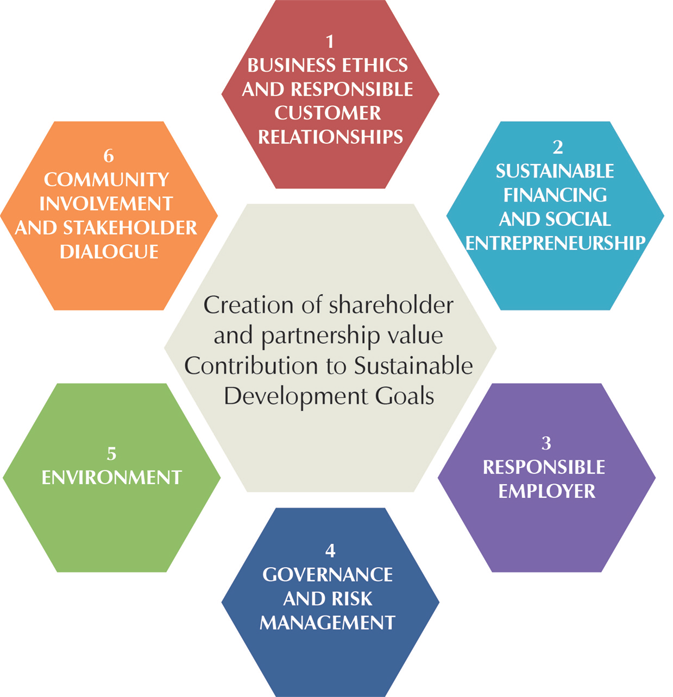CORPORATE SOCIAL RESPONSIBILITY COMMITMENTS
Among the leading pan-African financial groups, BANK OF AFRICA is the most internationally oriented Moroccan banking group, with a presence in more than thirty countries in Africa, Europe and Asia, employing more than 14,800 staff across the world.
Several commitments made - Equator Principles, UN Global Compact, Positive Impact Finance Principles, Mainstreaming Climate Action in Financial Institutions - confirm BANK OF AFRICA's continuous willingness to contribute, with Impact, to the Sustainable Development Goals.
BANK OF AFRICA Group's Corporate Social Responsibility Charter defines 6 pledges which guide our practices and growth model as a committed Group. Our CSR Charter is articulated around the
following strategic areas: :
- 1. Respect business ethics and the interests of our clients.
- 2. Promote sustainable financing and social entrepreneurship.
- 3. Be a responsible employer attentive to our employees and accompany their development.
- 4. Be diligent in the exercise of governance and risk management.
- 5. Protect the environment.
- 6. Act in the interest of communities and support dialogue with our stakeholders.
The objectives associated with each pledge are guidelines that each leader, manager, and employee must integrate within their scope of actions, to deploy the necessary means for their implementation and regularly disclose them, as part of extra-financial reporting.
The active involvement of all is essential to tackle this major challenge, in respect of the values, ethics, responsibility and good governance that bring us together.
Othman Benjelloun
BANK OF AFRICA Group Corporate Social Responsibility Charter
6 pledges aligned with industry best practices
For Group-wide deployment of the CSR Approach
- Fight corruption, fraud and anticompetitive
practices - Prevent money laundering and financing of terrorist activities
- Information security and protection of personal data
- Responsible customer relationships
- Prevent over-indebtedness
- Responsible purchasing
- Environmental and Social Risks
Management - Financing resource efficiency (waterenergy-
waste) - Low-carbon economy and clean production
- Support SME and micro-enterprise growth
- Social Entrepreneurship
- Financial inclusion
- Positive impact investment
- Diversity and equal opportunity for
women and men - Career management and training
- Support career mobility and transformations
- Health, safety and quality of life at the workplace
- Collective bargaining and social
dialogue

- Education
- Support microfinance and financial education.
- Financial inclusion
- Respect for human rights
- Dialogue with stakeholders
- Mitigation of the environmental
footprint associated with daily
activities (energy-water-waste- GHG
emissions) - Promotion of sustainable construction.
- Cultivate a culture and behavior of sustainability.
- Reliability of information to the Board and Specialized Committees
- Risk management and ESG factors
- Independence of Directors
- Authentic and complete financial information
- Respect for shareholders' rights